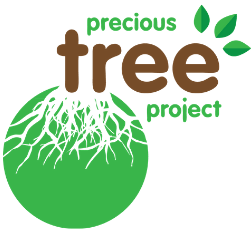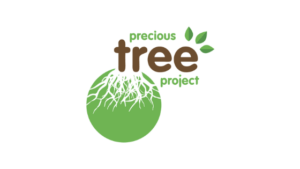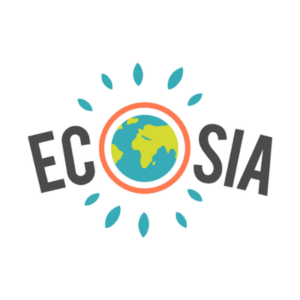Our vision is the regenerative development of the Garden Route and to achieve this goal we are allocating funds to a range of projects and programs.
Creating Mini Bio-Mimicked Forest Patches
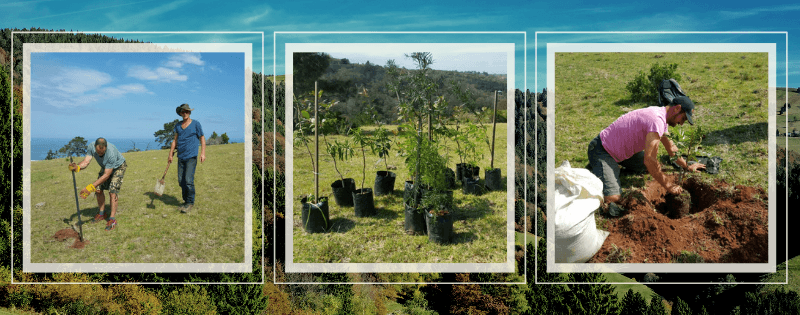
While the benefits of planting indigenous trees are great – planting out small bio-mimicked patches of endemic forests have even greater benefits. One of our ongoing projects is the restoration/regrowth/creation of natural indigenous and endemic forest patches across the GR and the restoration of the “forest floor”. Since 2010, we have planted a number of bio mimicked patches on private properties. This program was initiated in Wilderness Heights and is an ongoing process as funds come in. View
Rehabilitation and Restoration Projects
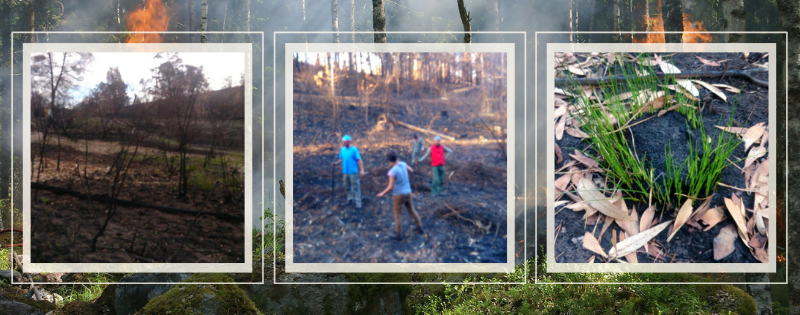
The devastating fires of Knysna in 2017 destroyed a number of properties across the Garden Route. We have been involved in the rehabilitation and the planting out of trees from sponsors and donations that have helped the process. Sites include Heartland Organic Farm & School of Self-Suffiency, Nirvana in Rheenendal, and JJ Bass’ Farm in Plettenberg Bay. View
Clearing and Biomass Control Program
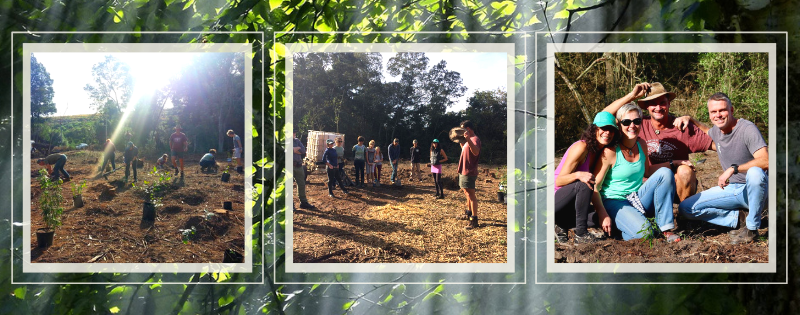
We have set up a Clearing Program for private properties on the Garden Route. This program is tied into local economic development and job creation initiatives. The availability of biomass to use as a resource is a significant part of our efforts at regenerative development along the Garden Route. We are partnering with a number of local companies to deal with the conversion of biomass to wood for burning, energy, biochar, mulch, wooden products etc. View
Seed Harvesting Program
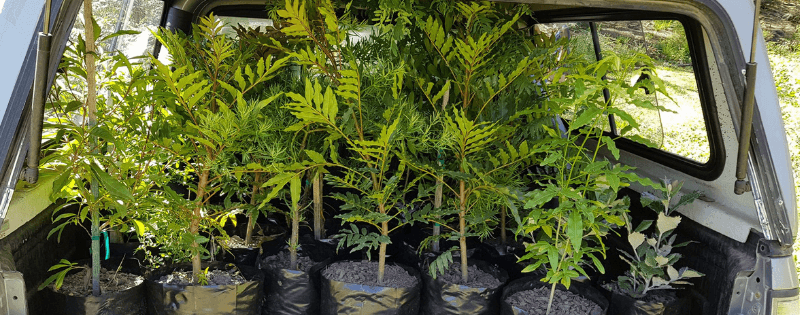
We believe that it is important to grow and source seeds as close to our planting sites as possible. One of the activities we participate in is teaching our volunteers how to sustainably and appropriately harvest endemic and indigenous forest trees that can be grown by one of our mini satellite nurseries and transplanted out on one of our selected Garden Route sites.
In addition to the purchase of rapos/seedlings to grow our trees, we are also involved in the (guided) sustainable harvesting off private properties – as we collect, we also allow saplings the space to grow and reduce the competition for the natural endemic trees to shoot up and grow. We prefer to grow with seeds from the same region the grown trees will be planted in.
Declining bee and bird populations (increased presence of non-indigenous trees and fires) and relocation of insect bird life (post the fires) have negatively impacted pollination rates. This program is key in facilitating the growth of natural endemic trees found in the Garden Route.
Nursery Development Program
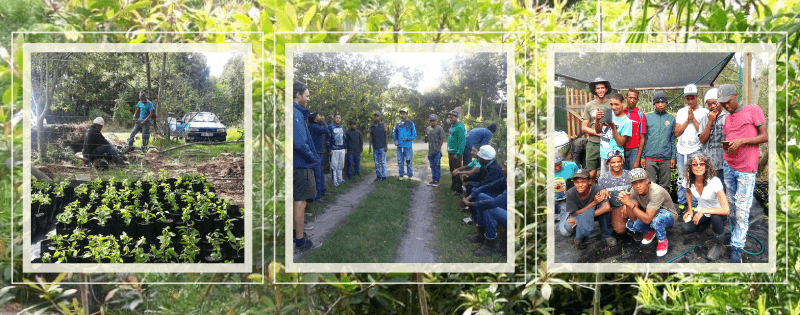
If we want to plant millions of trees, we need to grow millions of trees. Growing and maintaining saplings under the same environmental and climatic conditions in which they will be planted out increases the rate of survival once they are planted out and also reduces the carbon footprint around transporting them to site.
We have established a number of mini PTP mini satellite nurseries along the Garden Route where many landowners in the community have shown a keen interest in participating in our vision.
School Educational Workshops and Tree Planting Program
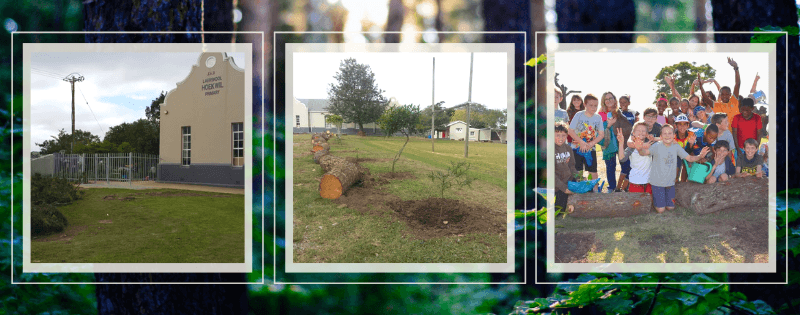
Environmental Education is a key component of the work that we do. We have set up a School Education and Tree Planting Program to raise awareness amongst our youth around our connection to our environment and the benefits of planting trees. We focus on planting out indigenous forest food trees for our school planting endeavours. View
Community Training and Educational Workshops Program
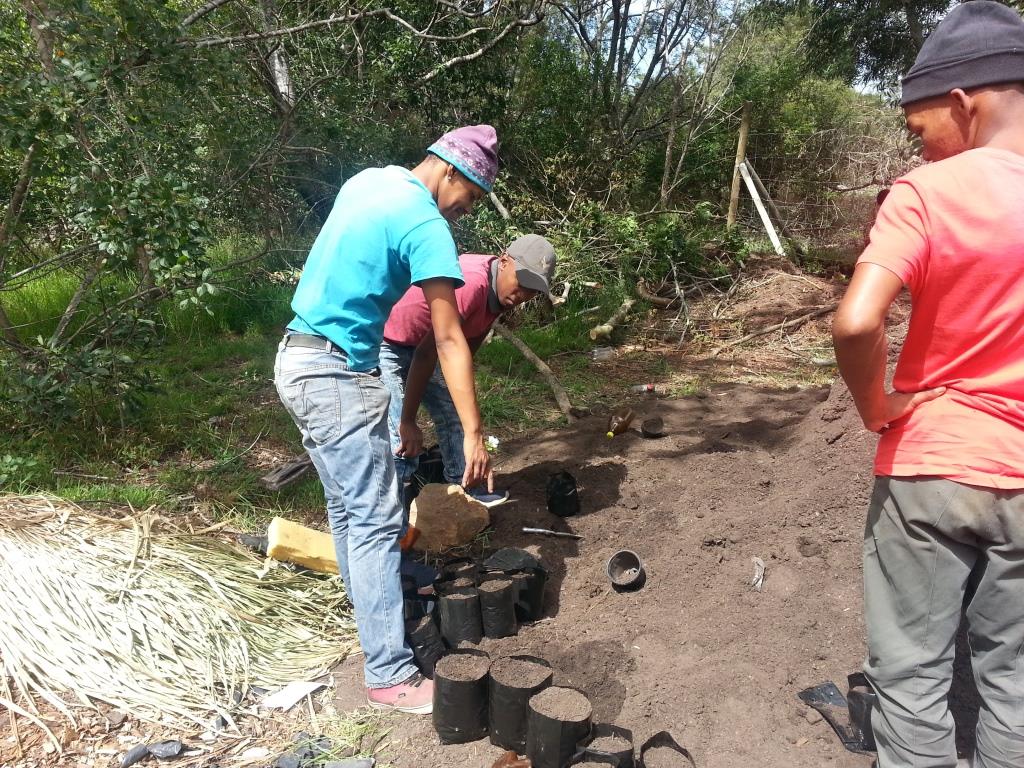
We have a range of ongoing training and educational programs that we provide to community members in the GRD. These are geared to addressing the different challenges of our local community members, particularly those who are living permanently in the area.
These socio-economic-environmental challenges include high levels of employment, lack of basic skills, lack of awareness around the natural environment, compromised safety (highlighted by the re-occurring outbreaks of life-threatening fires), to name a few.
- How to make your own compost
- Vermiculture – making earthworm juice
- How to build a nursery
- Environmental Health and Well-being
- Resource Management Tips and Practices
- Seed Germination
- Requirements and Practices to Harvest Seeds Sustainably off your (private) Property
- How to grow and Maintain Indigenous Trees
- Level 1 Clearing Non-indigenous Trees (basic skills and resource management)
- Level 2 Clearing Non-indigenous Trees
Small Grants Program
As a Public Benefit Organisation, we would like to assist other socio-economic and environmental initiatives. As funding comes in from our Loyalty Reward Programs, we will be offering a percentage of those funds to a range of socio-eco-environmental upliftment projects. There are many little non-profit initiatives along the GRD invested in specific causes: restoring insect and animal life (biodiversity), protecting and rehabilitating bee communities, protecting the Knysna seahorse, monitoring and evaluating the Crown Eagle, protecting the caracal (rooikat), elephants, leopards, baboon management, monitoring vervet monkeys, to name a few. As sufficient funds come in through our Loyalty Reward Program we will be opening up applications for small grants in order to assist these initiatives.
